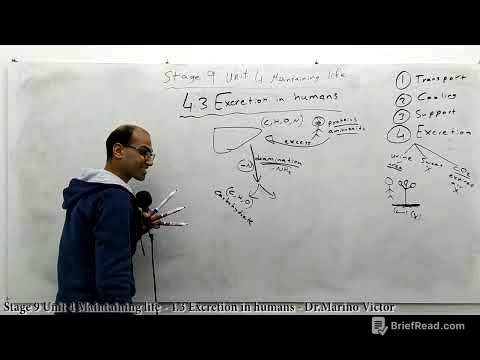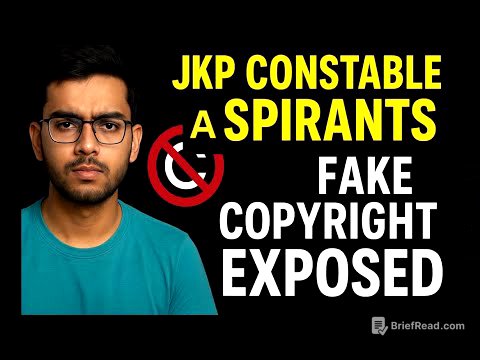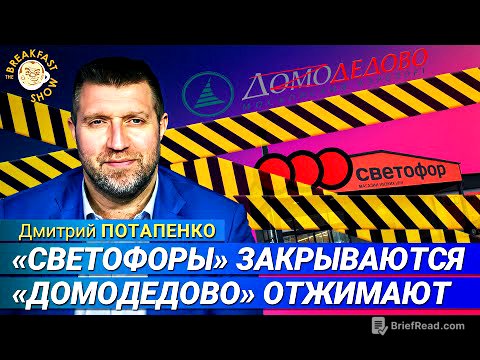TLDR;
This Joe Rogan Experience podcast features an in-depth conversation with Kash Patel, former Chief of Staff at the Department of Defense and current figure in the FBI. The discussion covers a range of critical issues, including the fentanyl crisis, the weaponization of government agencies, the Epstein case, and efforts to reform the FBI. Patel emphasizes the importance of transparency, accountability, and prioritizing national security over political agendas.
- Fentanyl crisis originating from China and its devastating impact on the US.
- Weaponization of government agencies for political purposes, citing the Russia Gate scandal and the Hunter Biden laptop controversy.
- Epstein case, addressing conspiracy theories and the ongoing investigation.
- Efforts to reform the FBI, including relocating resources to the field and prioritizing violent crime.
Fixing the FBI [0:13]
Kash Patel discusses his initial surprise at how quickly changes could be implemented within the FBI, attributing it to the readiness of long-time agents who had been waiting for such reforms. A key change was redirecting agents and resources from the National Capital Region to field offices to address pressing issues like drug overdoses, child rapes, and homicides more effectively. Patel emphasizes that one agent in the field can prevent homicides or conduct major drug busts, which is more impactful than having them focused on internal matters in Washington D.C.
The Fentanyl Crisis and China's Role [3:14]
Patel identifies the root of the fentanyl crisis as the Chinese Communist Party (CCP), which provides the precursors needed to manufacture fentanyl. While the CCP claims to regulate fentanyl production, they continue to ship other precursors to Mexico, where cartels produce the drug. Patel details efforts by the FBI to combat this by targeting precursor companies in mainland China and working with international partners to shut down production facilities in countries like India and Canada. He argues that the CCP is intentionally targeting the United States by enabling the fentanyl crisis, aiming to weaken the country by harming its population.
Addressing Fentanyl Distribution and Educating the Public [9:47]
Patel explains that drug trafficking organizations are manufacturing fake pills, such as oxycodone, laced with fentanyl to appeal to a broader audience, including young people. These organizations also shape illicit narcotics to resemble candy, making them attractive to children. Patel stresses the importance of educating the American public about the root cause of the fentanyl crisis, which is the precursors. He mentions working with the Indian government to stop the flow of these precursors and emphasizes that the lack of action in previous years has allowed the problem to metastasize.
Prioritizing National Security and Exposing Disinformation [13:13]
Patel criticizes the previous administration for not classifying drug trafficking as a prime threat, which led to a reorientation of intelligence collection operations towards issues like climate change and DEI. He contrasts this with the Trump administration's focus on national security, citing the successful rescue of over 50 hostages and detainees from around the world. Patel argues that the media's hatred for President Trump led them to discredit his administration's successes and perpetuate disinformation, particularly regarding the Russia Gate scandal.
Russia Gate and Weaponization of Government [20:27]
Patel describes Russia Gate as a political party acquiring fake foreign intelligence to surveil a political opponent, which was then used by the FBI to lie to a federal court. He recounts how he was targeted and smeared by political opponents for exposing this scheme. Patel emphasizes that the warrant to surveil the Trump campaign was substantiated by FBI leaks to the media, creating a coordinated conspiracy to weaponize government against a political opponent. He notes that half of America still believes the narrative pushed by the media, making it difficult to correct the record.
Accountability and Statute of Limitations [27:48]
Patel discusses the challenges of holding people accountable for past crimes due to the statute of limitations. He reveals that he discovered a hidden room full of documents and computer hard drives that Comey and others had concealed. Patel shares an example of Nelly Ohr, who lied to Congress about working with her husband on digging up dirt on Donald Trump, but cannot be prosecuted due to the statute of limitations. He emphasizes his commitment to congressional oversight and providing documents to Congress unredacted.
Government Gangsters and Rewards for Misconduct [31:13]
Patel promotes his book, "Government Gangsters," which exposes the weaponization of government for political purposes. He discusses the rewards given to those involved in the Russia Gate scandal, such as Andy McCabe, who was allowed to retire with full benefits despite agreeing to wear a wire into the Oval Office to record President Trump. Patel highlights how individuals like McCabe and Peter Strzok are now commentators on CNN, benefiting from their roles in spreading disinformation.
Epstein Case: Investigation and Conspiracy Theories [39:04]
Patel addresses the Epstein case, stating that he had no suspicions of foul play before taking office. He explains that the American public will get as much information as the FBI is allowed to release, including the video of Epstein's cell. Patel dismisses conspiracy theories, stating that he would bring the case hard and fast if there was any evidence of murder. He notes that Epstein had attempted suicide before and that sex offenders against children are not treated well in prison.
Epstein Case: Autopsy and Missing Video Footage [42:50]
Patel addresses the conflicting expert opinions on Epstein's autopsy, with Dr. Michael Baden claiming it was a homicide due to a broken bone in his neck, while the city's chief medical examiner ruled it a suicide. He also discusses the missing jail video footage, noting that the jail mistakenly saved footage from the wrong cell. Patel emphasizes that he is giving the public all the footage they have and that people can make up their own minds.
Epstein Case: AI and the Search for Truth [48:46]
Patel addresses concerns about AI-generated content, assuring that the video footage he is providing is authentic. He reiterates that he is giving the public the tape from the tape and the documents from the vault. Patel explains that the FBI is reviewing everything meticulously and will provide all available information. He clarifies that there is no video of the island that people are speculating about and encourages anyone with information to come forward.
Epstein Case: Chain of Custody and Revictimization [54:35]
Patel discusses the chain of custody for the video footage and assures that the FBI is putting together all the information they have. He emphasizes that they will not revictimize women by releasing certain footage. Patel states that if there was footage of anyone doing anything else, they would have opened a case. Patel acknowledges that there may be footage that they will never have access to because it has already been destroyed.
Priorities: Defending the Homeland and Stopping Kids from Dying [58:59]
Patel states that the FBI's biggest job is to defend the homeland and stop kids from dying. He mentions the Catholic memo, where the FBI targeted Catholics as domestic terrorists based on information from the Southern Poverty Law Center. Patel also discusses the breakthrough in finding Fauci's devices, which may contain information about whether he lied about COVID origins. He emphasizes the importance of exposing the truth, whatever the consequences.
Operation Fast and Furious and Homicide Rates [1:03:10]
Patel reflects on past events like Operation Fast and Furious and notes that the FBI is on track to have the lowest homicide rate ever in the country. He attributes this to letting good cops be cops and giving them the resources they need to do their jobs. Patel mentions the arrest of three of the world's top 10 wanted fugitives, including the Abbey Gate bomber, and questions why the prior administration did not prioritize these cases.
Known or Suspected Terrorists (KSTs) and Sanctuary Cities [1:08:29]
Patel discusses the intentional decision to let people into the country, including known or suspected terrorists (KSTs). He criticizes the previous administration for not knowing where these individuals were and emphasizes that the FBI is now targeting them. Patel notes the tectonic shift in mentality, with law enforcement now working together and not living in sanctuary cities. He defends separating families when necessary to protect American lives.
Intentional Decisions and the Border Crisis [1:11:23]
Patel believes that the decision to open the border was intentional, leading to an influx of criminals, terrorists, and drug traffickers. He highlights the combination of forces between Russia, the CCP, and other adversaries to infiltrate America. Patel emphasizes the need for patience and building up the workforce to fix the broken infrastructure. He mentions the poor condition of the Hoover building, the FBI headquarters, and the plan to relocate to a safer location.
Tribal Lands and Operation Not Forgotten [1:13:33]
Patel discusses the horrific crimes committed on tribal lands and the lack of priority given to law enforcement in these areas. He mentions Operation Not Forgotten, where agents and intel analysts are deployed to remote tribal locations to solve violent crimes. Patel emphasizes the importance of working with tribal leaders to address trafficking, murders, and violent crime on Indian reservations.
Agro Terrorism and the CCP [1:18:17]
Patel discusses the arrest of a scientist bringing in a mushroom that could cause billions of dollars of damage to agriculture and livestock. He highlights the multiple levels of operation that adversaries are looking to do harm, including agro terrorism. Patel also mentions the issue of adversaries buying land around military bases and the need for states to take legislative action to prevent this.
Foreign Nationals and Universities [1:22:37]
Patel discusses the vulnerability of allowing foreign nationals to come to universities and conduct research, often reporting back to the CCP. He emphasizes the importance of separating national security issues from political issues and working together to stop threats like fentanyl and terrorism. Patel highlights the harm caused by leaks from inside government and the spin on that information by the media.
Fake News and Social Media [1:25:59]
Patel discusses the impact of fake news and social media on the FBI's credibility. He shares an example of a New York Times story that misrepresented his decision to cut down the morning briefing cycle at the FBI. Patel notes that a significant portion of social media activity is driven by bots and click armies, making it difficult to address real issues.
Epstein Files and Social Media Spats [1:28:10]
Patel addresses a social media spat between Elon Musk and Donald Trump, with Musk claiming that Trump is in the Epstein files. He emphasizes that he is not participating in that conversation and stays out of it. Patel notes that social media can be detrimental to mental health and that the FBI has to find the right balance of using it to communicate with the public.
Hunter Biden Laptop Story and Weaponization of Intelligence [1:31:20]
Patel discusses the Hunter Biden laptop story, highlighting the weaponization of intelligence and disinformation. He recounts how 51 former intelligence agents signed a letter claiming that the laptop was Russian disinformation, despite knowing it was true. Patel criticizes Gina Haspel, then director of the CIA, for quickly authorizing the release of the letter.
January 6th and National Guard Deployment [1:34:53]
Patel discusses the events of January 6th, stating that President Trump authorized up to 10 to 20,000 National Guardsmen and women, but the mayor of DC and the speaker of the house declined the deployment. He argues that had the National Guard been there, the events would have gone differently. Patel mentions the agent provocateurs involved in January 6th and the ongoing investigation into the pipe bomber.
Cocaine in the White House and Restoring Trust [1:38:29]
Patel discusses the discovery of cocaine in the White House and the lack of investigation into the matter. He emphasizes the importance of controlling what he can control and restoring trust in the FBI. Patel states that the FBI's credibility took a hit due to the actions of a few people in charge and that they are working to build it back.
Pardons and Congressional Oversight [1:41:04]
Patel discusses the impact of pardons on potential investigations, such as whether Fauci lied to Congress. He explains that the Department of Justice will have to determine whether the pardon applies. Patel emphasizes the importance of rigorous constitutional congressional oversight to restore trust in the FBI.
Dysfunction and Depravity in Leadership [1:42:20]
Patel expresses shock at the levels of depravity in leadership and their willingness to lie to the public. He contrasts this with the functionality of most of the FBI. Patel criticizes the media for attacking the FBI when it labels certain events as acts of terrorism, such as the Molotov cocktail attack in Denver.
Derangement Syndrome and the Truth [1:46:58]
Patel attributes the media's behavior to derangement syndrome and their hatred for certain individuals. He argues that they don't care about the truth and are willing to diminish their credibility to attack those they oppose. Patel emphasizes the importance of reaching different audiences and trying to change the narrative.
Long-Term Solutions and the American People's Trust [1:47:50]
Patel emphasizes that fixing the problems created over the past four years will take time and that the American people's trust is essential. He states that the goal is not only to catch the bad guys but also to fix the institution so that corruption doesn't happen again. Patel argues that the priorities shifted under the previous administration, leading to corruption and a focus on political potshots.
Shifting Priorities and Encouraging Corruption [1:49:37]
Patel argues that focusing on DEI and climate change weaponizes government agencies and promotes people based on their background and beliefs rather than their ability. He mentions changing the physical fitness test at the FBI to ensure agents are capable of performing their duties. Patel believes that the media is aware of the truth but continues to push false narratives to maintain their position.
Media's Role and the American People's Trust [1:51:17]
Patel notes that the media has been losing money for years but continues to perpetuate false narratives. He argues that the media needs to shift course to regain the American people's trust. Patel highlights the pro-Hamas positions that have emerged on college campuses and the need to address the threats to cyber infrastructure.
Teaming Up Against America and the Need to Try [1:54:49]
Patel discusses how adversaries are teaming up against America, including drug trafficking organizations, Russia, Iran, and the CCP. He emphasizes the need for a peaceful resolution to the conflict between Hamas and Israel. Patel concludes by stating that they have to try to reach different audiences and that he appreciates the opportunity to come on the show.
Proud of the FBI and Putting the Mission First [1:57:16]
Patel expresses his pride in the people at the FBI and their commitment to the mission. He emphasizes that his job is easy compared to what they are doing. Patel encourages people to look at the show in its entirety and see what they are about and putting the mission first.



![[무역영어] 핵심 이론 총정리! 11시간 동안 어려운 것만 골라 완전 정복하기 💯📗ㅣ 해커스금융 진민규](https://wm-img.halpindev.com/p-briefread_c-10_b-10/urlb/aHR0cDovL2ltZy55b3V0dWJlLmNvbS92aS9ZQmtnM0o1X1Q0WS9ocWRlZmF1bHQuanBn.jpg)





